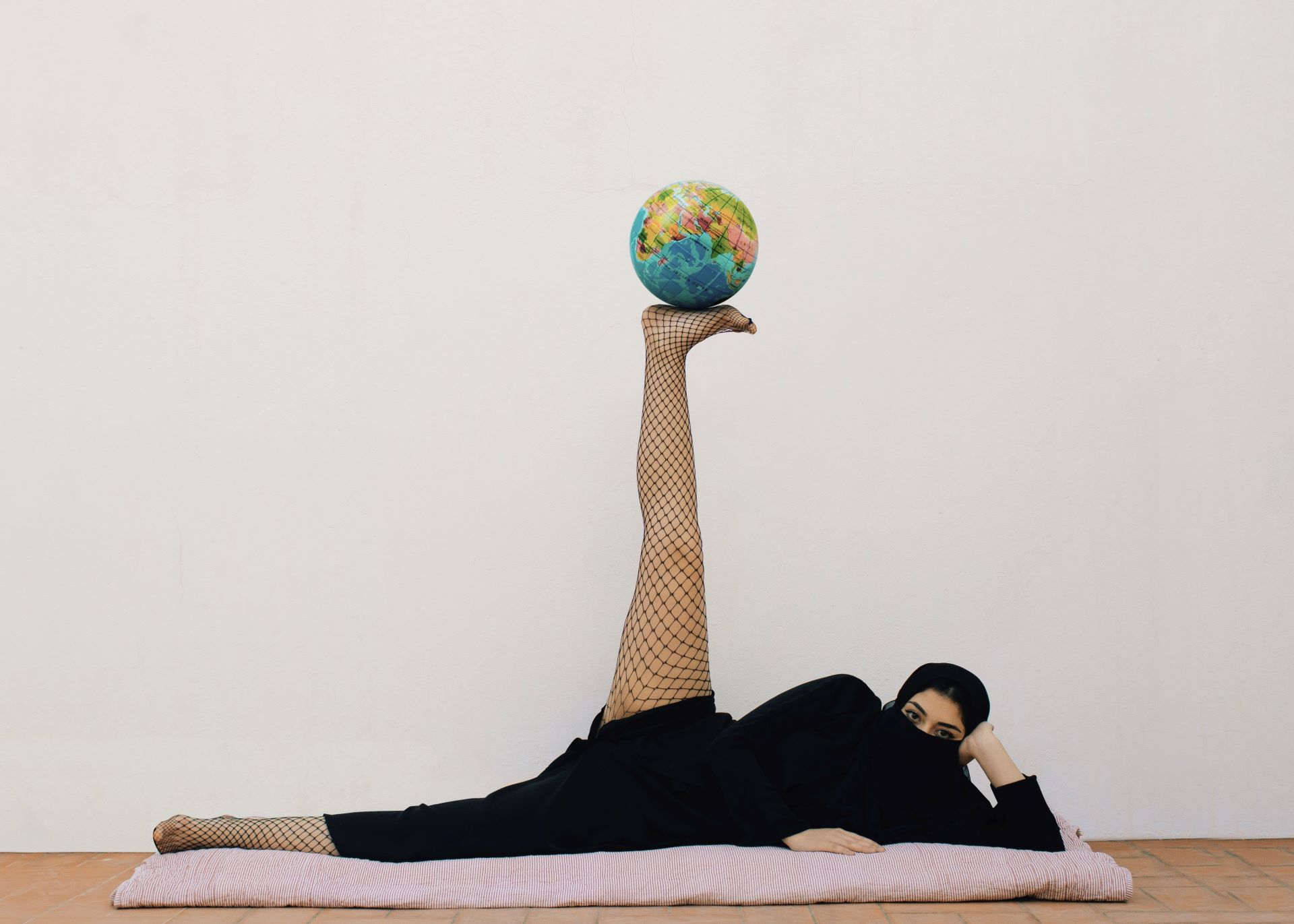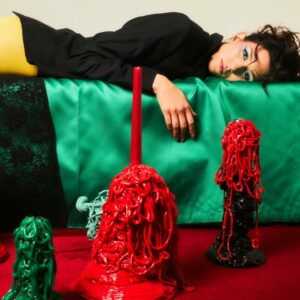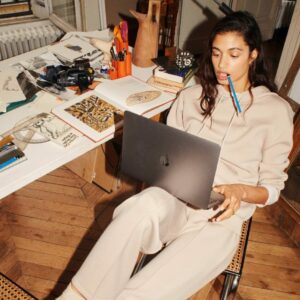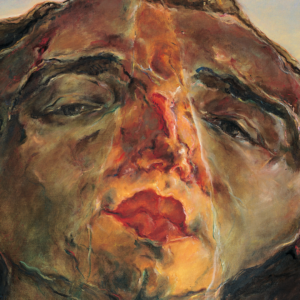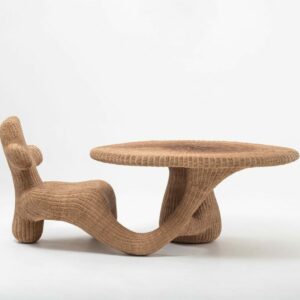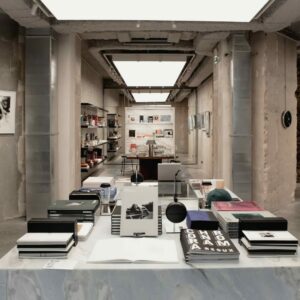For Moroccan photographer Fatima Zohra Serri (Instagram) her artistic journey began long before she embarked on it as a full-time profession. Despite her desire to pursue photography after graduating from school, she found herself behind a desk, as an accountant. Yet, her passion for the arts remained steadfast, using her camera as a way to alleviate depression brought on by the monotony of her accounting job. Serri’s portraits serve as a reflection of her reality, challenging societal norms and initiating conversations about gender and inequality in her community. For Fatima Zohra Serri, photography is more than a hobby; it serves as a tool to dismantle stereotypes and amplify the silent voices, particularly those of women within her community.
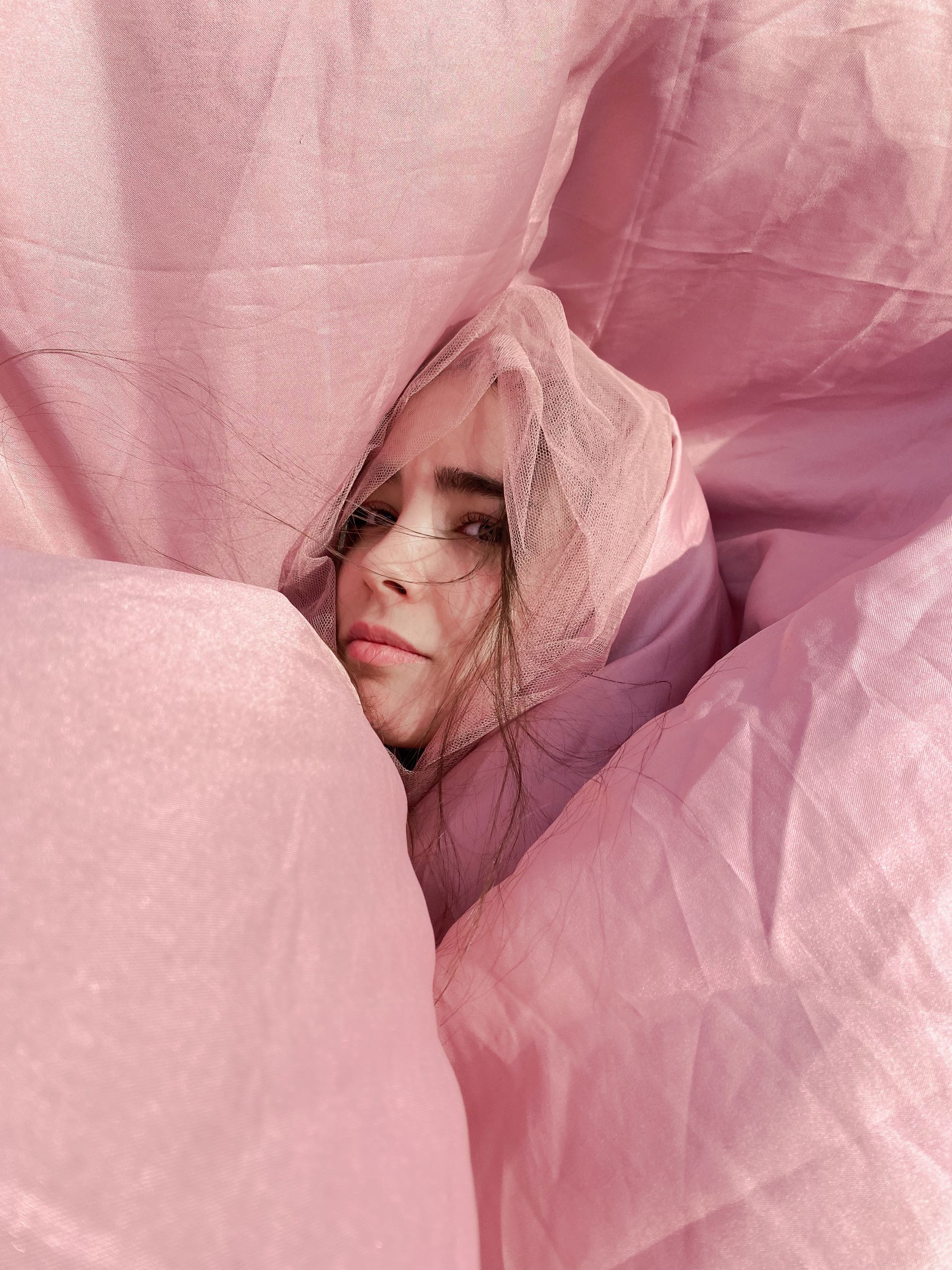
Can you tell us about your journey into photography, from starting with your smartphone to purchasing your first camera?
I started photography in the summer of 2016 out of curiosity, I first turned to it as an outlet for my depression after starting a desk job as an accountant. My days were composed of sameness, solitude and a feeling of voicelessness. I started shooting with the simple lenses of a mid-range phone, a year later I received an affordable camera as a present from a friend to take my hobby to the next level.
After enjoying street photography for some time, I wanted to discover a completely different style, conceptual photography, to create something that reflects who I am and more related to me. I started with self portraits on the roof of our house, sometimes with my sister as a model.
Due to the controversial nature of my work, I find it challenging to freely shoot in public. As a result, most of my early works were shot exclusively on the roofs of my home or my friends’ homes. In August 2021 I decided to quit my job and focus on photography to work as a full time artist photographer. I took this decision after five years of working as an accountant, it was affecting my practice as an artist and most importantly my mental health.
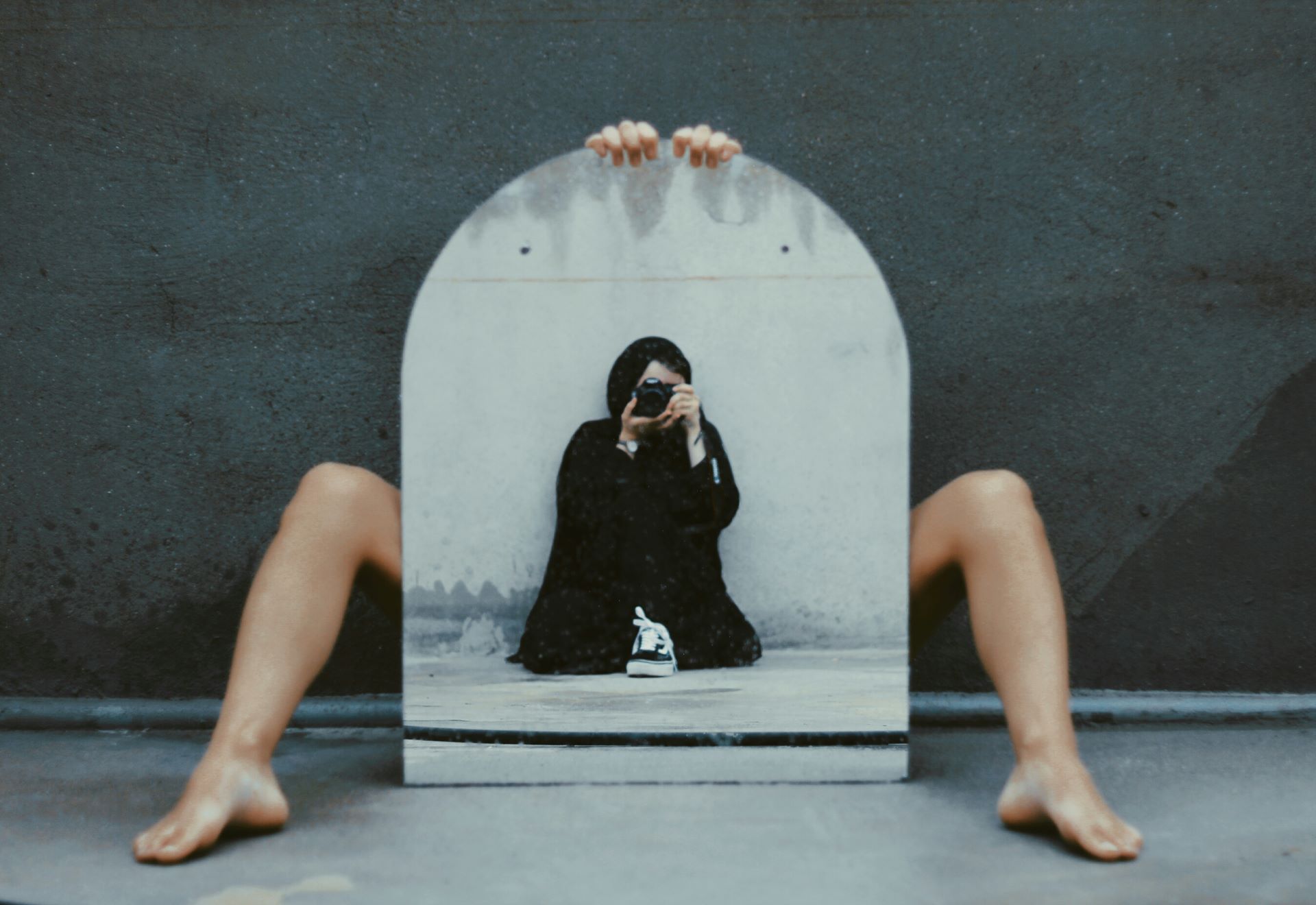
How has your background and upbringing in Morocco influenced your photographic style and subject matter?
My environment and people that surround me are my biggest inspirations, particularly the women in my conservative society, as well as the situations I have experienced personally or witnessed through the people around me. Photography is my tool to express my feelings about those experiences. Through my work, I aim to shed light on their stories and challenges and spark conversations.
What challenges do you face as a photographer in Morocco, particularly concerning the limitations on taking photographs in public spaces?
Navigating cultural norms and perceptions in Morocco can be challenging for photographers. Capturing the stories of women and sensitive situations is my passion, but it sometimes clashes with societal expectations. In public spaces, people often misunderstand or feel uncomfortable with my unconventional style. Despite these hurdles, I persist in using photography to shed light on important narratives and spark conversations.
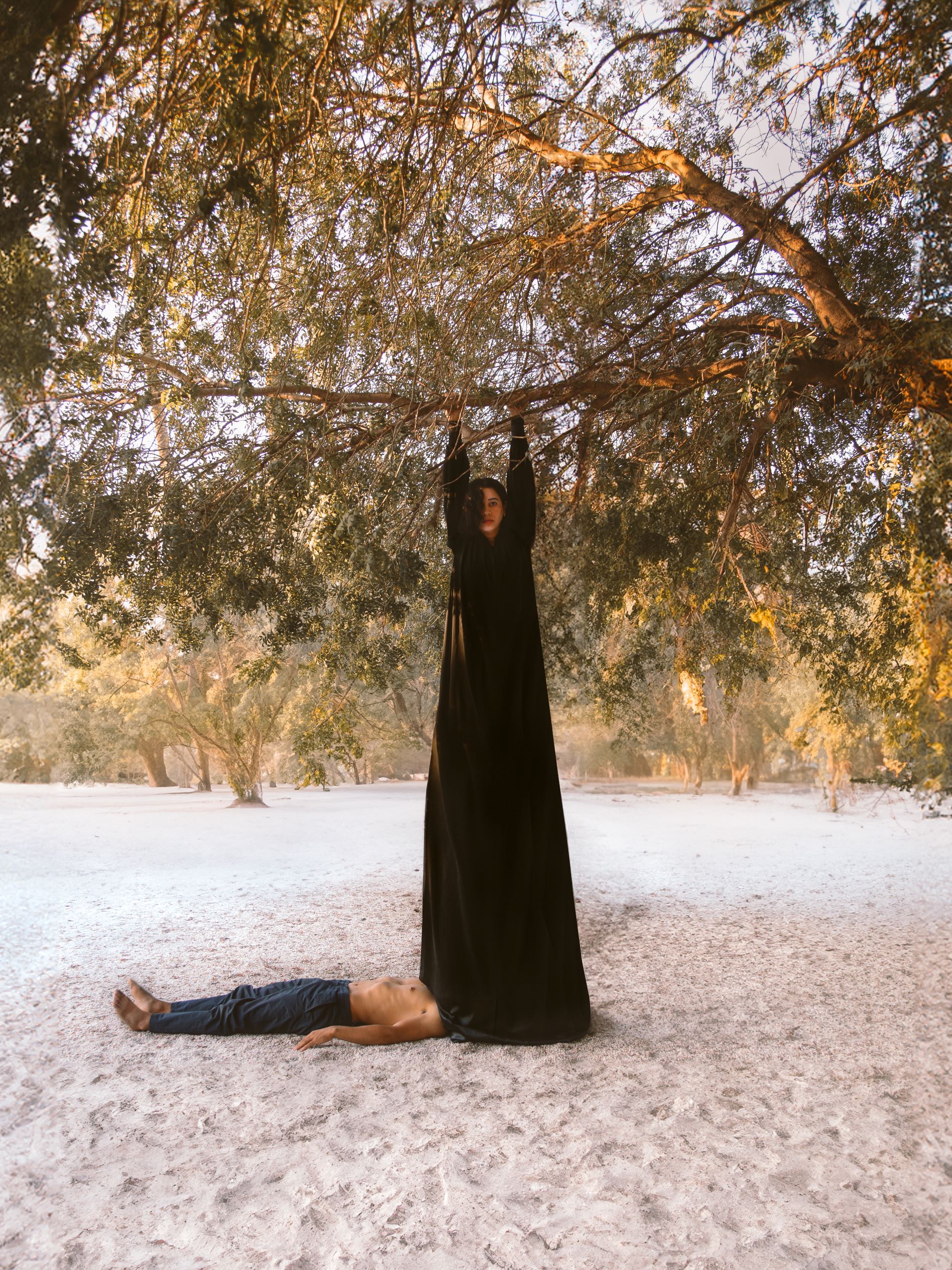
Your work often addresses issues faced by Moroccan women in society. How do you navigate portraying these themes while respecting cultural sensitivities?
As a woman photographer in Morocco, I encounter both obstacles and chances for growth. While societal norms can shape perceptions, sometimes dedication and skill can overcome these barriers. Being a woman grants me access to perspectives and moments that add depth to my work, offering a more authentic portrayal of Moroccan life.
Loneliness, confinement, and the quest for escape are recurring themes in your work. What draws you to explore these themes, and what do you hope viewers take away from your images?
I explore themes like loneliness, confinement, and the quest for escape through my photography because they reflect my own experiences and emotions. I want viewers to feel a connection with my images and maybe see their own struggles mirrored in them. Ultimately, I hope to evoke understanding and empathy through my work.

In what ways do you challenge or subvert stereotypes and clichés about Morocco in your photography?
I’m not intentionally challenging stereotypes or clichés about Morocco through my photography. Instead, I aim to authentically reflect the reality of my experiences and surroundings. By capturing moments and stories as they unfold in my life, I naturally portray a diverse and multifaceted perspective of Morocco that may challenge preconceived notions. My focus is on honesty and sincerity rather than actively confronting stereotypes.
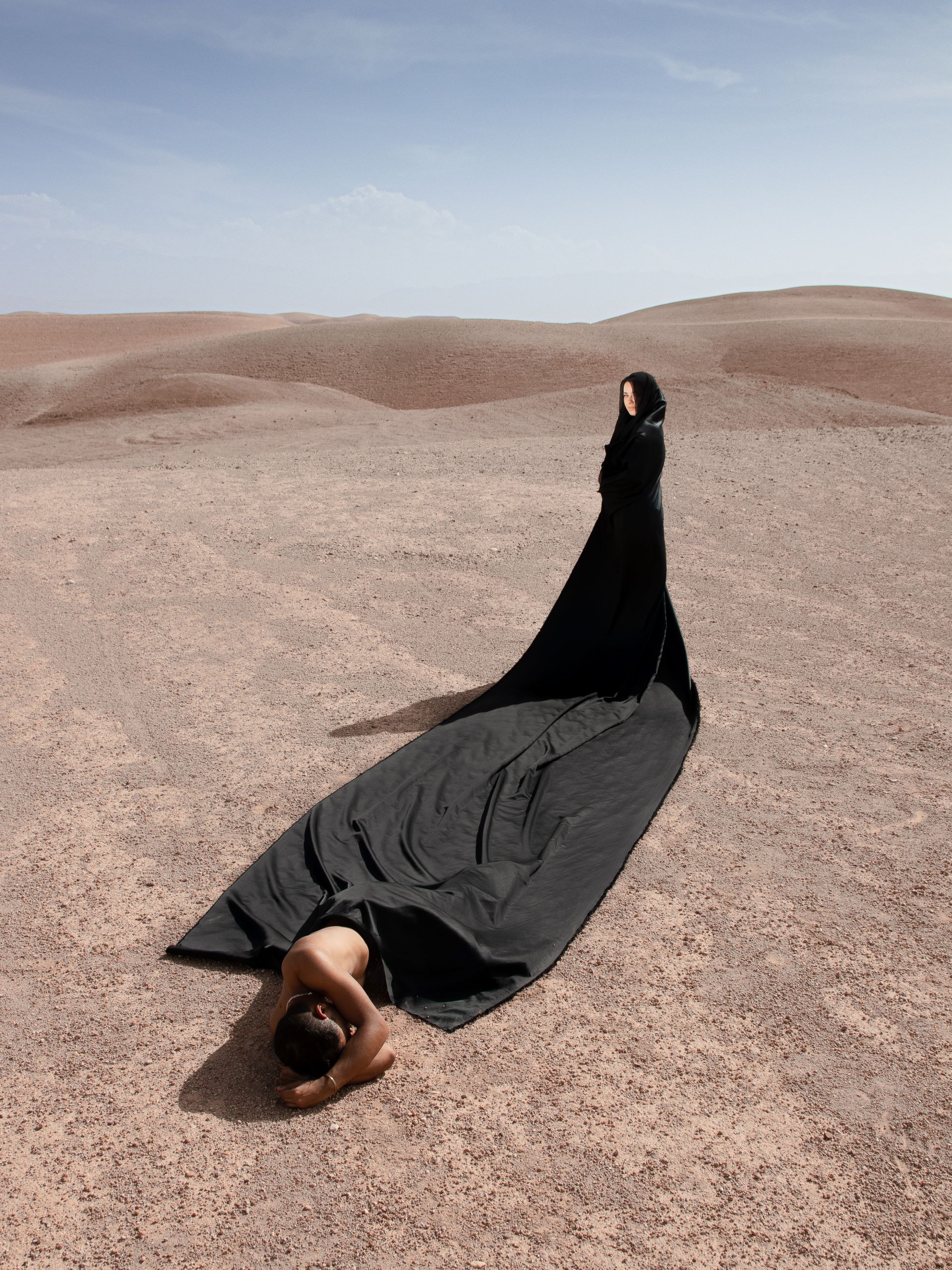
How do you approach the process of staging and composing your self-portraits? Do you plan them meticulously or allow for spontaneity?
Most of the time, I plan my self-portraits meticulously. I begin with a clear concept or idea in mind, considering everything from composition to lighting to props. This planning process helps me execute my vision precisely and ensures that the final image accurately reflects my intended message or emotion. However, I’m also open to spontaneity during the shoot, allowing room for creative experimentation and unexpected moments to emerge organically.
For more stories of art and culture, like this interview with Fatima Zohra Serri, visit our dedicated archives.
